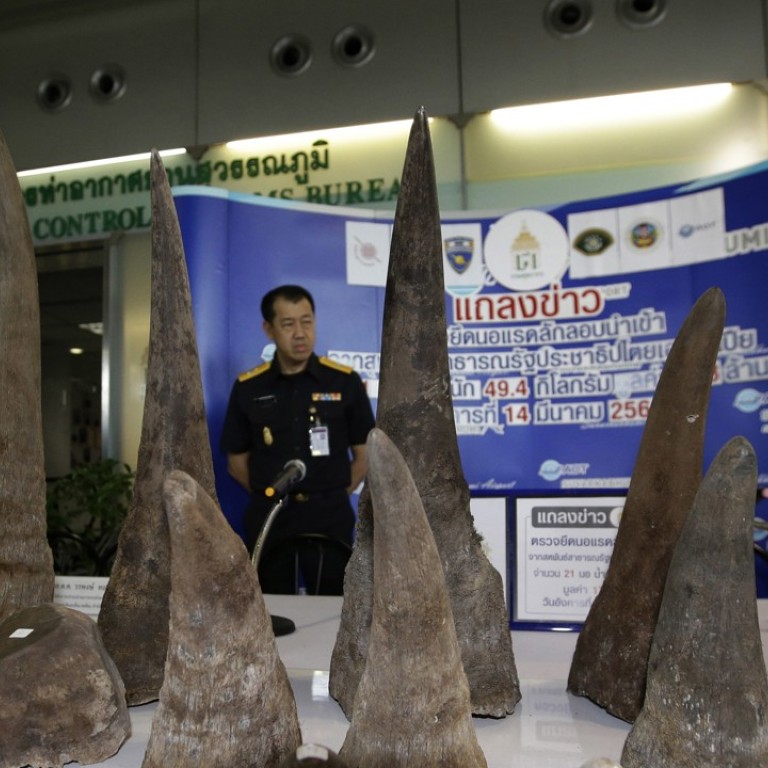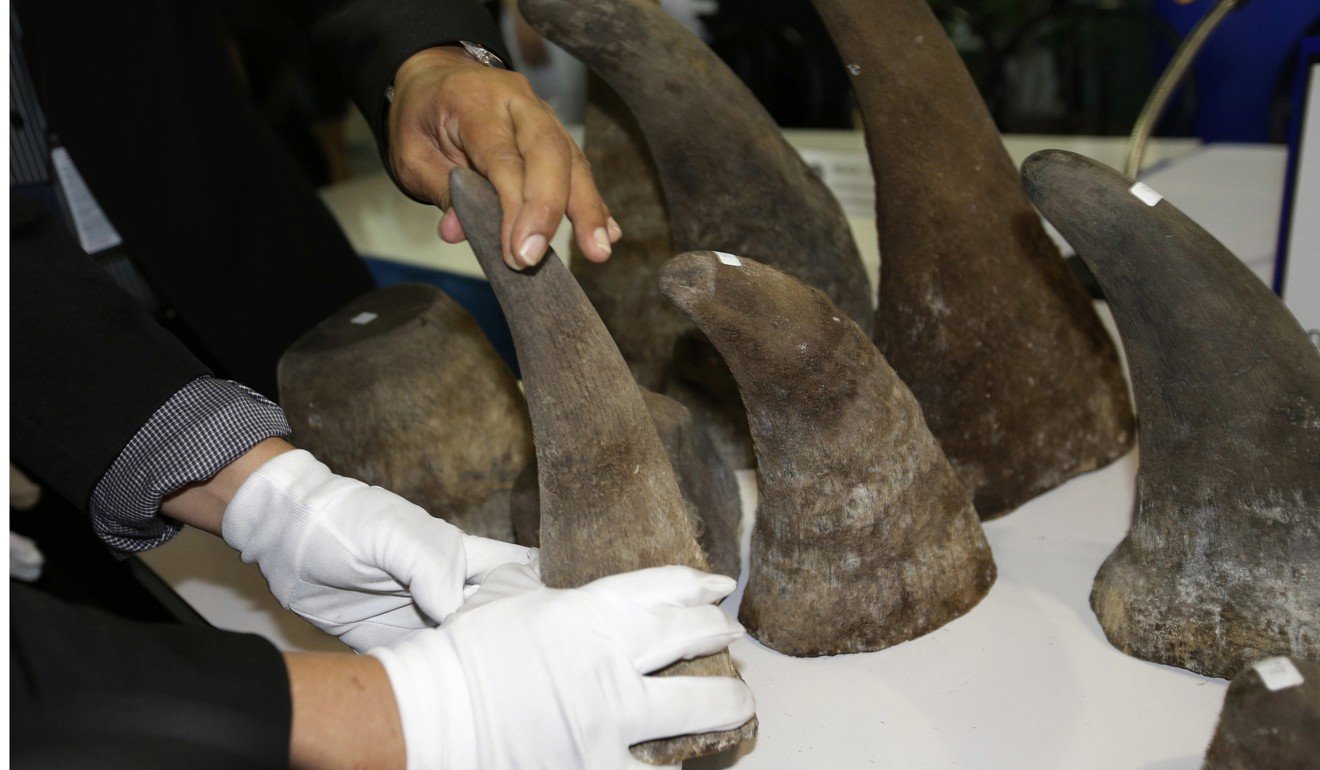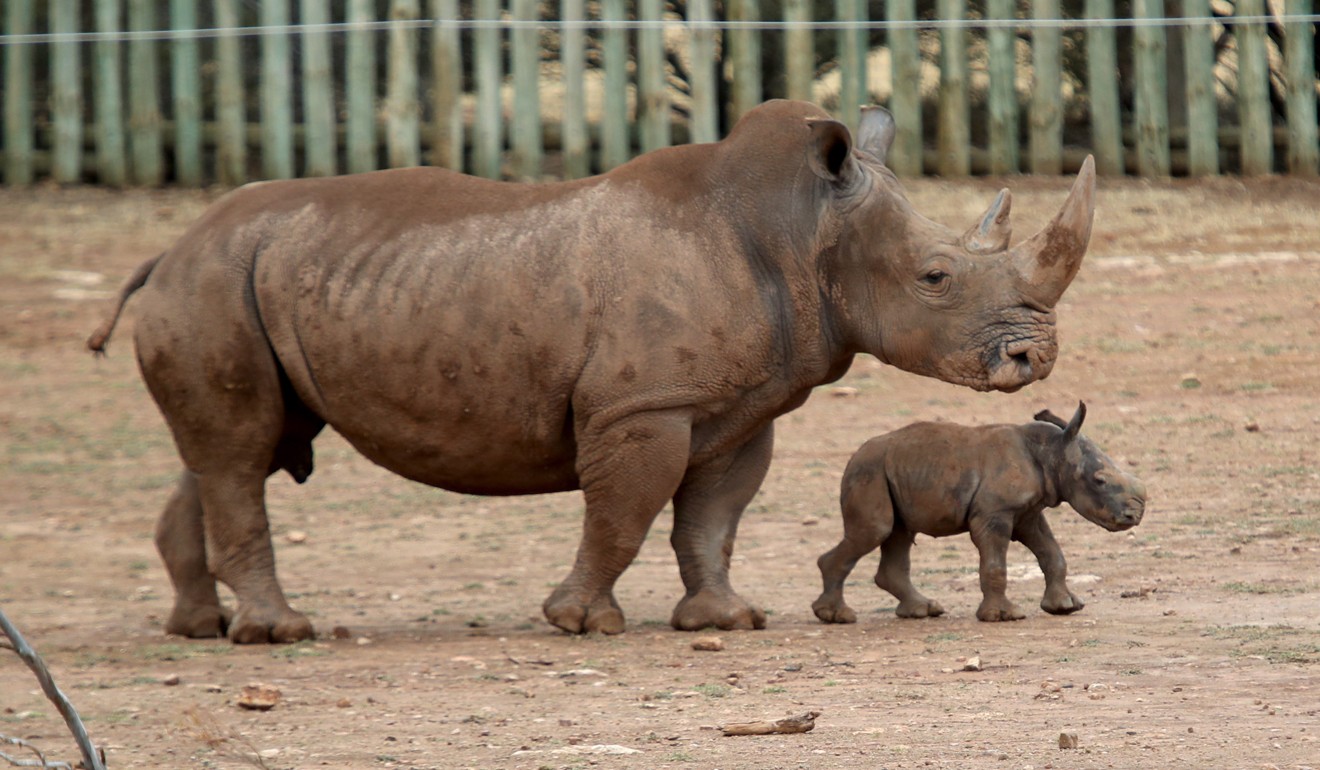
Thai court jails three, including a public prosecutor, for smuggling US$1.4 million of rhino horns
- Authorities found 21 rhino horns weighing 49 kilograms, traced back to Africa where the critically endangered species is widely hunted
A public prosecutor and two Thai women were sentenced to four years in prison on Tuesday after they were caught attempting to smuggle more than a dozen rhino horns worth US$1.4 million through Bangkok’s main airport last year.
The smugglers were caught with bulging bags of the contraband at Suvarnabhumi airport, accompanied by the senior justice official who tried to sneak them through customs undetected.
The trio were convicted on Tuesday of “illegally importing prohibited goods” and given four years in prison each, according to a statement from Samut Prakan provincial court where the trial took place.
The two smugglers, Thitirat Arai and Kansini Anutranusatra, fled after they were stopped by customs officials who X-rayed the bag. They were later apprehended.

Authorities found 21 rhino horns weighing 49 kilograms, traced back to Africa where the critically endangered species is widely hunted – its horn prized by quack doctors and as a status symbol in China and Vietnam.
He told officials the bag was carrying wine bottles
The court said the deputy public prosecutor, Woraphas Boonsri, tried to persuade customs officers not to check the bag and offered a bribe to let the bags pass.
“He told officials the bag was carrying wine bottles,” the court statement said.
Woraphas was caught after he was identified on CCTV footage appearing to escort the women through customs. All three received bail.
Thailand’s junta has vowed to crack down on the illegal wildlife trade in the kingdom, which is a key gateway to the rest of Asia, namely Vietnam and China where the illicit animal parts are widely consumed, mostly for traditional medicine.
But conservationists say Thailand is not doing enough to curb the illicit trade, with officials often implicated in wildlife trafficking cases.

China last month announced unexpectedly that it would lift a ban on rhinoceros horns and tiger parts, a move that animal welfare groups said could wipe out the endangered species.
But Beijing backtracked on the decision after an international outcry and reinstated the ban.
Rhino numbers are down from 500,000 at the beginning of the 20th century to around 30,000 today, the majority in Africa where illegal poaching has badly dented their numbers.
China delays end to ban on use of rhino horn and tiger bones

.png?itok=arIb17P0)